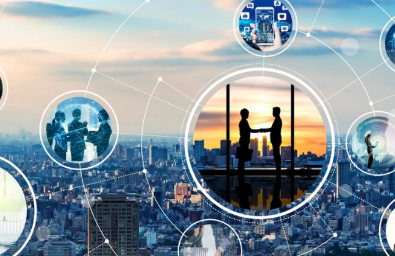Rising automation: how seriously should we take it?
New skills will see us through an uncertain future
Can workplaces become more flexible and inclusive?
By now we’ve all heard the statistic: in the next five years more than half of all workplace tasks will be performed by machines. Many jobs, as we know them, will cease to exist. Paper after paper, including this one by the World Economic Forum, warns of the impact of automation on working people.
From the days when Luddites smashed looms in pre-industrial Britain to our current worries concerning artificial intelligence, we’ve long considered machines an existential threat to our livelihoods. And yet economies – especially in the developed world – have survived.
This what the rate of automation looks like
The rate of automation
The robots are coming – and fast.
But if the research is right, and twice as many new jobs are about to emerge than were lost to disruption, then how worried should we really be? And how much can we say we know about the coming age of technological unemployment?
It’s true that technological change is happening faster than before – just look at the graphic above, but while we know technology is a part of our future, we don’t know how large a role it will play.
What the experts say
One thing’s for sure: we’re going to need new skills. “Study after study shows that while technology will alter many roles directly, it’s also set to have indirect effects. As demand for mathematics, computing and data analysis grows, so too will the need for human attributes like creativity, critical thinking, persuasion and negotiation,” writes Bernadette Wightman, Managing Director of BT Group.
But it’s not just workers who need to worry about upgrading their skills. Companies too, are seeking out ways to appeal to a new generation of workers. Millennials and Generation Z will be the majority of the workforce in 2020, writes Judy Oh, Director of Strategy at BrightHouse, a BCG company, and they’re already reshaping the relationship between employer and employee. “Younger workers are looking for more decentralized environments where they can decide how work gets done,” she says.
As we acquire new skills, we’ll also need to un-learn some old ones, says Kathy Bloomgarden, COE of Ruder Finn. “Specifically, everyone must ask themselves … how do we disrupt our outdated ways of doing things? How do we challenge ourselves to deviate from conventional business practice?” Only that way will be prepared for unpredictability in the job market.
Will You Lose Your Job to Automation?
These are some of the issues experts at Davos will attempt to prise apart as they tackle the coming age of workplace disruption. From the jobs of the future and the skills we need to get them, to the impact of inequality and climate change, here are some key sessions on the theme of work.
Social Mobility: Reskilling the Next Billion – Getting to 50-50 Gender
Survival Skill : Digital Workplace



